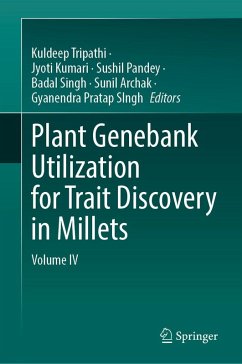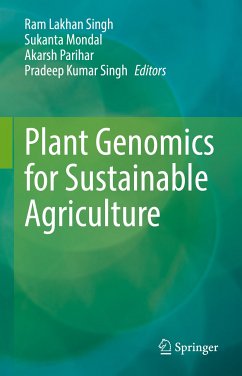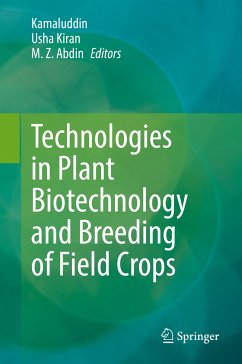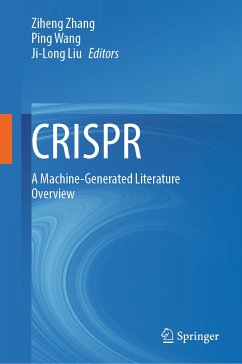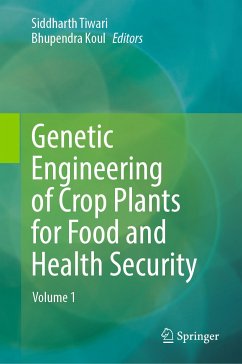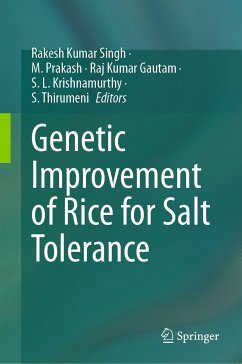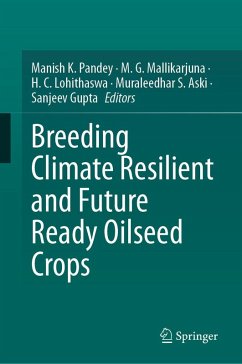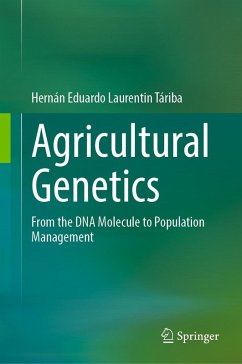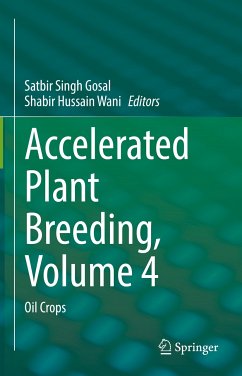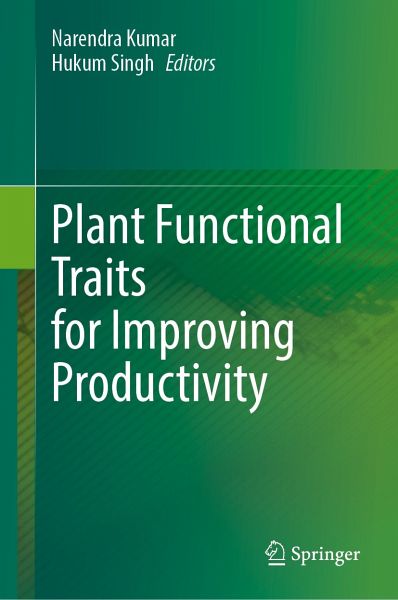
Plant Functional Traits for Improving Productivity (eBook, PDF)
Versandkostenfrei!
Sofort per Download lieferbar
144,95 €
inkl. MwSt.
Weitere Ausgaben:

PAYBACK Punkte
72 °P sammeln!
This book discusses how plant functional trait selection can help researchers to understand the plant-environment relationship, identify desirable traits, modulate plant resilience according to the changing climate, optimize resource use efficiency, and enhance genetic improvement. The plant functional traits-based approach provides a framework for improving crop productivity in agricultural systems with high precision. It enables researchers to develop crop varieties with desirable traits by focusing on the fundamental characteristics influencing growth, development, and response. Climate cha...
This book discusses how plant functional trait selection can help researchers to understand the plant-environment relationship, identify desirable traits, modulate plant resilience according to the changing climate, optimize resource use efficiency, and enhance genetic improvement. The plant functional traits-based approach provides a framework for improving crop productivity in agricultural systems with high precision. It enables researchers to develop crop varieties with desirable traits by focusing on the fundamental characteristics influencing growth, development, and response. Climate change and environmental variability pose significant agricultural challenges. The plant functional traits-based approach can help address these challenges by selecting and breeding traits that enhance resilience and adaptability capacity of the plant. This approach also contributes to sustainable agriculture, by focusing on increased food production, and resilience in extreme environmental conditions.
This book provides guidance to the researchers and breeders to develop crop varieties with desirable traits. It is also a reference book for graduate and postgraduate students studying botany and agriculture.
This book provides guidance to the researchers and breeders to develop crop varieties with desirable traits. It is also a reference book for graduate and postgraduate students studying botany and agriculture.
Dieser Download kann aus rechtlichen Gründen nur mit Rechnungsadresse in A, B, BG, CY, CZ, D, DK, EW, E, FIN, F, GR, HR, H, IRL, I, LT, L, LR, M, NL, PL, P, R, S, SLO, SK ausgeliefert werden.



